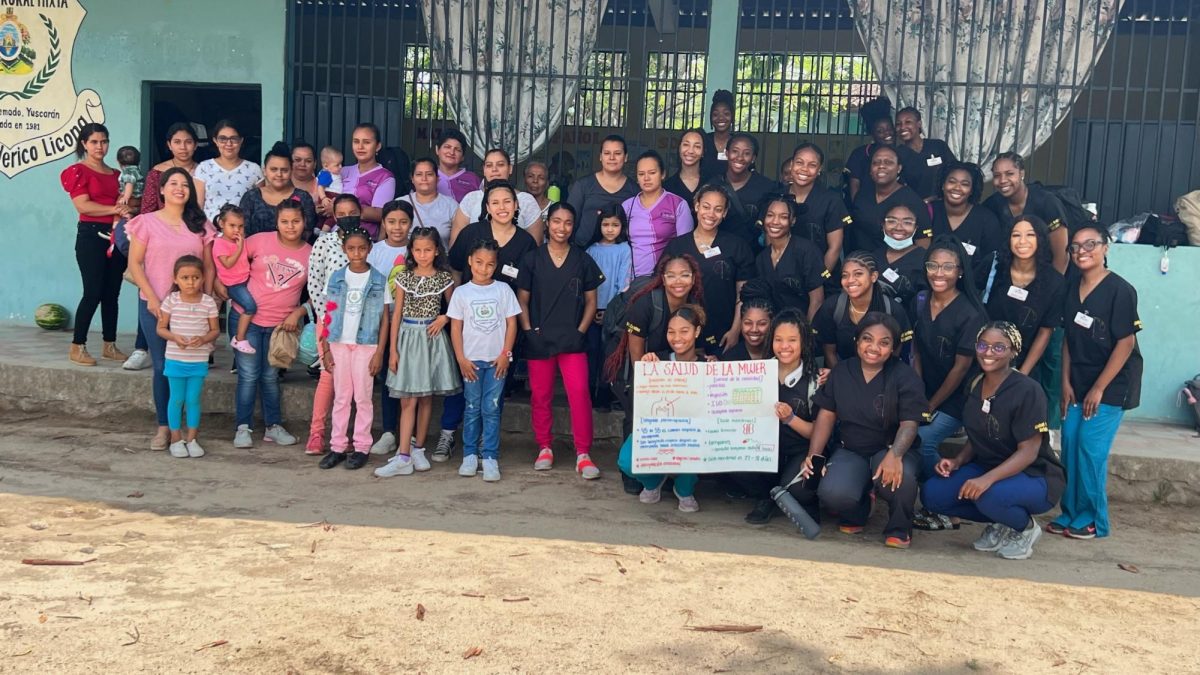In efforts to show appreciation for the university’s mere 4% Latinx population, N.C. A&T hosted its debut Fiesta Latina Celebration last fall during Hispanic Heritage Month.
After having a great turnout, the university planned to put together an even bigger celebration showcasing food, dance and language on Oct. 15. However, just nine days before the set date, students on the planning committee were notified that the event had been canceled for the semester.
“Due to circumstances beyond my control, it is with deep regret that I must report, we will be cancelling the program for this semester, with the hope of rescheduling and bringing it back in the spring semester,” said Pascha Miller, the assistant director of the Office of Intercultural Engagement, in an Oct. 6 email shared with The Register.
She said OIE reached that decision because it did not receive clear confirmation that the celebration abided by new state-level regulations regarding cultural programming throughout the UNC System.
“We weren’t really sure if it was a program that we could do,” said Miller. “With that being said, I put it on hold until we could find out what we are truly allowed to do.”
Students from different Latinx organizations, including the OIE’s Estamos Unidos and the Society of Hispanic Professional Engineers, spent months planning the flagship event to spotlight Latinx culture at A&T.
When they got the news it had to be postponed after all their hard work, they were crushed.
“This is extremely frustrating and disheartening and honestly just raises the questions ‘What CAN we do?’” Jayla Cordona, the vice president of Estamos Unidos, said in an Oct. 6 GroupMe message to the organization’s general body that was reposted on Instagram.
Since 2024, this question has been at the center of OIE leadership’s conversations as several university and UNC System-wide changes have impacted their operations.
Some of those changes include requiring UNC System schools to remove the words “diversity, equity and inclusion” from communications and websites.
“(In) our documentation that went out to students, whether it was a brochure, or flyers or anything like that, we had to change the wording we put in it,” said Miller.
Additionally, the university removed the OIE’s grants and scholarships from the website because many of them specifically outlined that they were resources to promote diversity and inclusion among minorities.
“We used to have an abundance of scholarships and grants on our website and one day everything was off the website,” she recalled.
Miller also said there have been concerns surrounding the possible shutdown of A&T’s “Rainbow Room,” which is home to the university’s LGBTA resource center.
A similar situation recently occurred at UNC Chapel Hill.
A few weeks ago, the university’s Black Student Movement organization lost co-ownership of a community lounge they had been occupying since 1973.
According to the Daily Tar Heel, university officials decided to revoke BSM’s co-ownership of the space because they believed they were violating federal guidelines that instruct all federally funded institutions to ensure they aren’t engaging in DEI initiatives.
UNC Greensboro has also made changes regarding their DEI practices. The university removed diversity and equity requirements from its general education curriculum last semester, The Assembly reported in June.
With federal policies regarding public universities and DEI initiatives being so in flux, UNC system students and faculty are just trying to keep up.
“Things change rapidly in this particular climate,” Miller said.
She hopes everything will get worked out by next semester so the Fiesta Latina Celebration can still be held.
“We’re cautiously optimistic that we should be fine,” she said.







